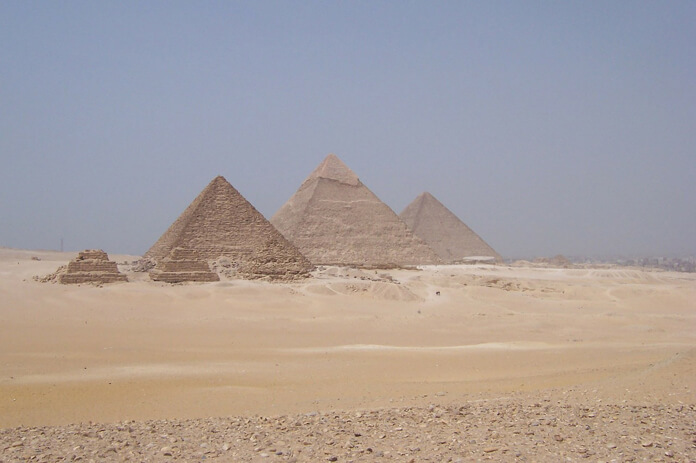Ancient history may soon repeat itself in Egypt. Close to the Valley of the Kings in Luxor, ancient mines provide guidance to modern gold miners towards new sources for gold in the Egypt’s eastern desert.

A history of thousands of years
The gold mines date back to the ancient Roman and Egyptian civilizations. Thousands of years ago, slaves dug out the gold from underground shafts to be used for trade or crafts.
Despite the deep roots of Egyptian gold mining, the sector has remained relatively dormant in the past half century due to a mix of factors including political instability, economic challenges and poor investment prospects. Today, there is only one gold-producing mine, Centamin’s (CEY.L) Sukari, contributing to less than one percent of the countries total gross domestic product (GDP).
Putting new use to ancient mines
Now, the ancient mines serve a new function: to provide clues for modern miners where to drill. Ancient miners lacked modern tools, which means there are significant amounts of gold, silver and other valuable metals likely to be beneath the surface.
Mark Campbell, CEO of Alexander Nubia (recently changed to the name Aton Resources Inc), an exploration company working in the area, says:
„There’s about 6,000 years of mining history here and a large part of it was gold … It offers almost a roadmap to the opportunities.”
“Using modern mining techniques and technology, we hope to recover a lot of the gold that they missed, because they were unable to mine and process it.”
Not having to figure out from the very beginning where to mine also saves the explorers precious time and money.
Egyptian government looks to expand gold mining
The Egyptian government is looking to expand the industry to from current levels of 1.3% of total GDP to 5% in the next ten years, according to the Egyptian Mineral Resources Authority.
This month it will launch its first bid round for new mining concessions since 2009. Most of the investors left after the 2011 uprising in response to the political turmoil and falling global gold prices.
Analysts and investors say that attracting new investors will come down to regulation. Egypt offers investors a production-sharing agreement, similar to its oil and gas deals. Mining companies feel this doesn’t fit their work. Unlike companies that drill wells, capital costs of mines can span tens of years and require hundreds of millions in investment. Egypt’s model makes its prohibitively expensive to mine there for some mining companies.
Abdelaal Attia, an advisor to the Egyptian Mineral Resource Authority (EMRA) doesn’t agree. Egypt’s commercial terms reflect the lower risk of exploration, as the ancient mines already indicate areas of mineralization.
„You will not go to an area and start from scratch … you know you have gold there. It’s just about how much,“ says Attia.
Optimism still high, betting on the ancient mines
Leonard Karr, a geologist with Alexander Nubia is still feeling very optimistic, certain there is gold in the area. He says eastern Egypt is “like a geological Disney World,” with many metals, including gold, just lying beneath the surface.
Thus far, findings have been small, but encouraging, according to Karr.
„Literally we have just scratched the surface here — there is a lot more to discover.“
